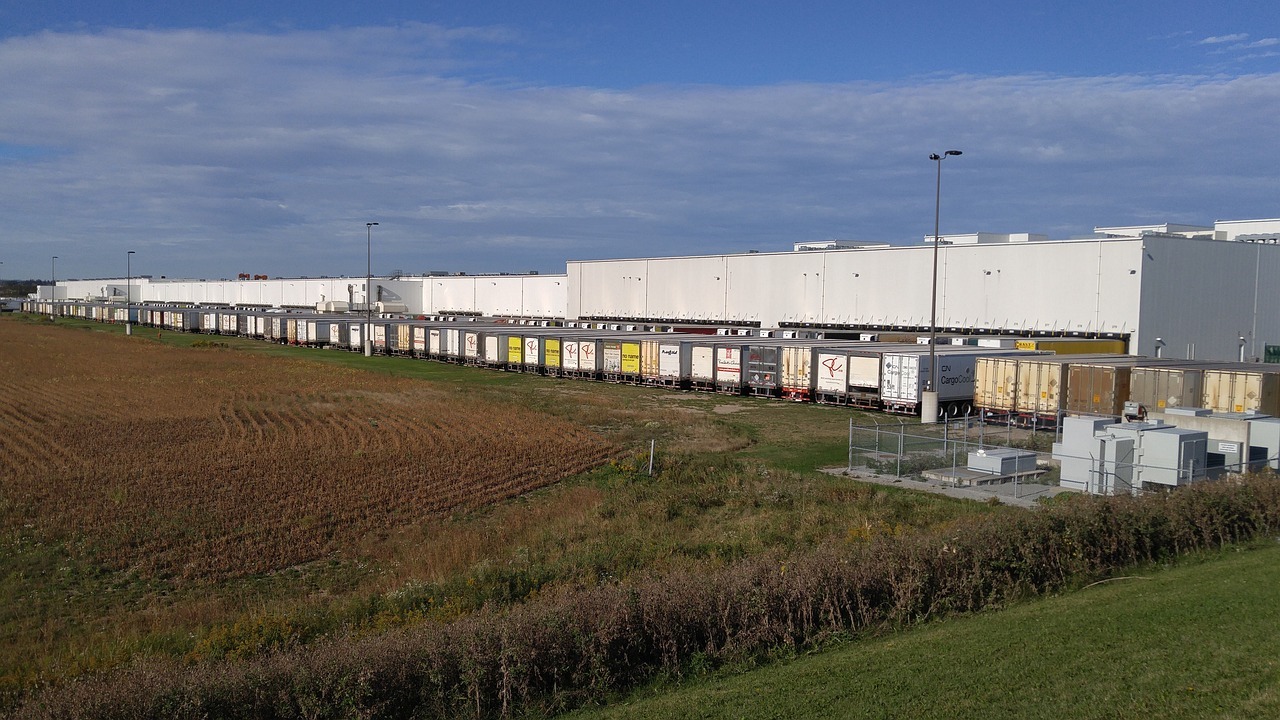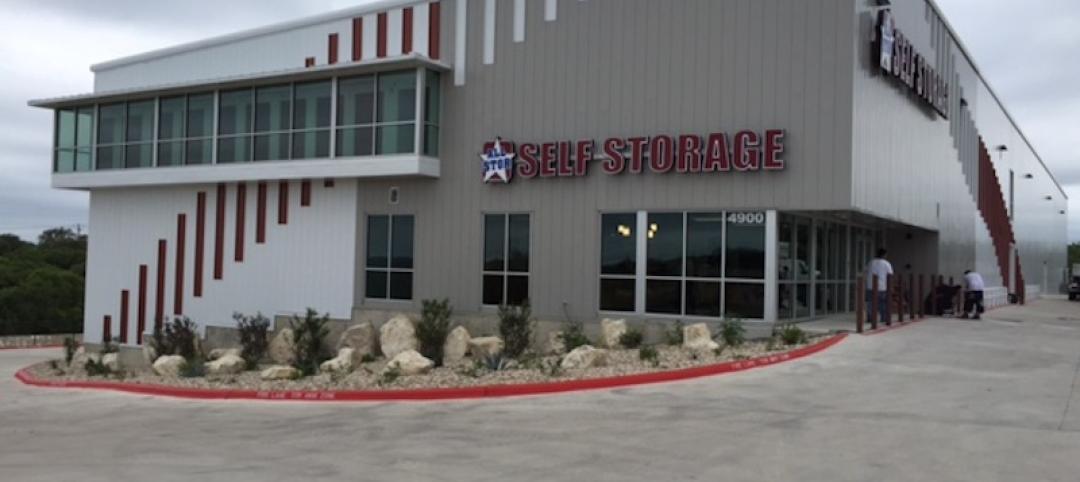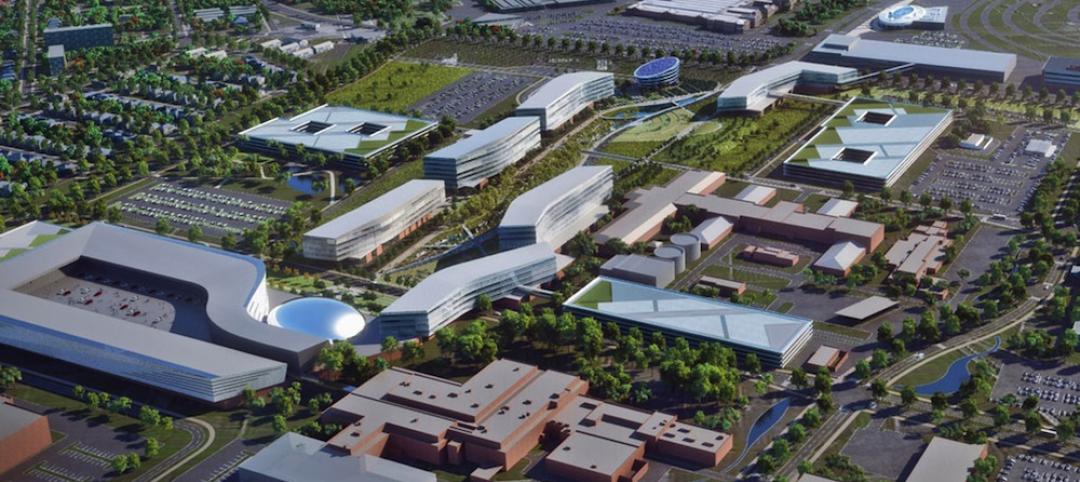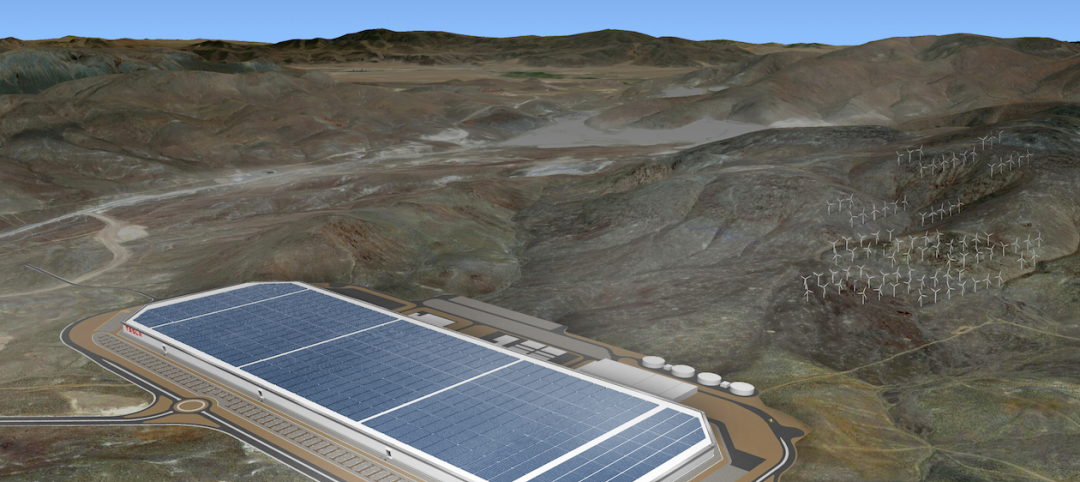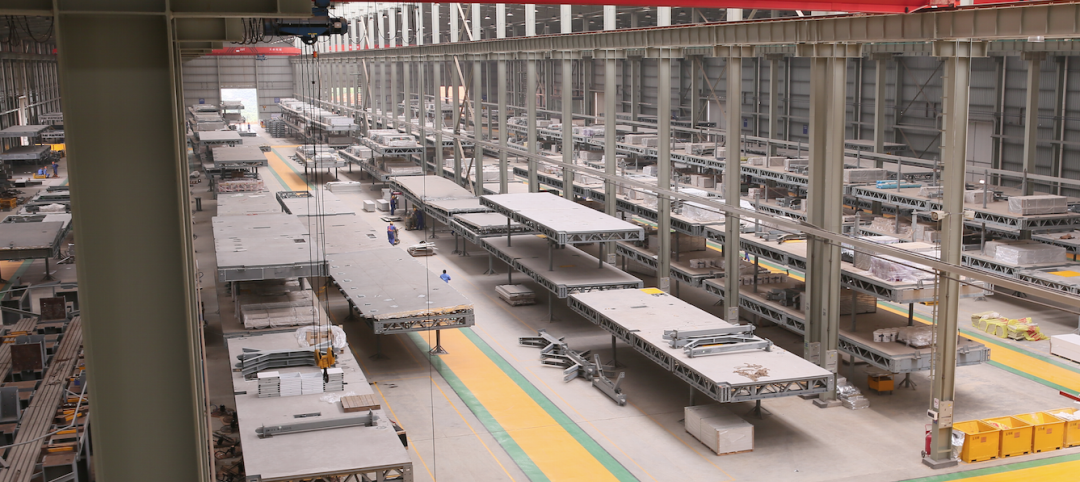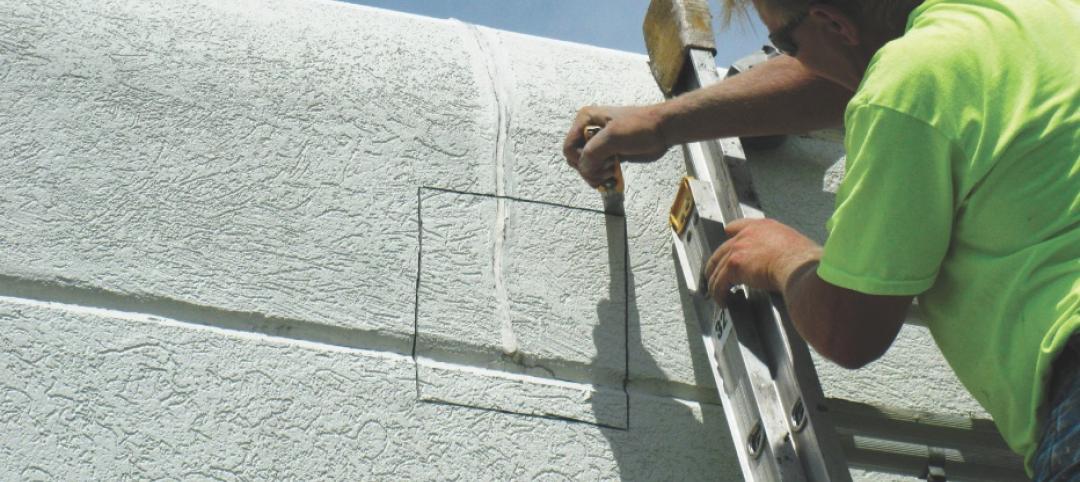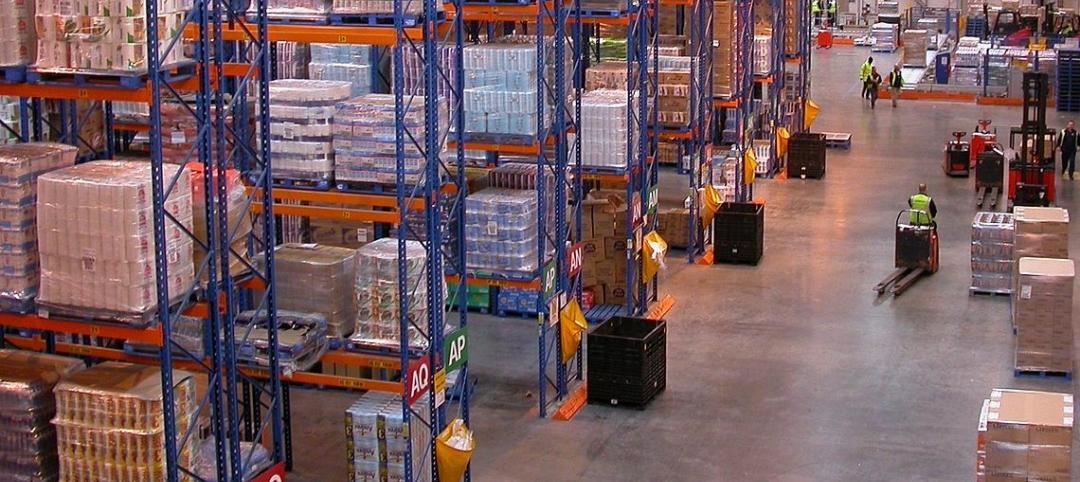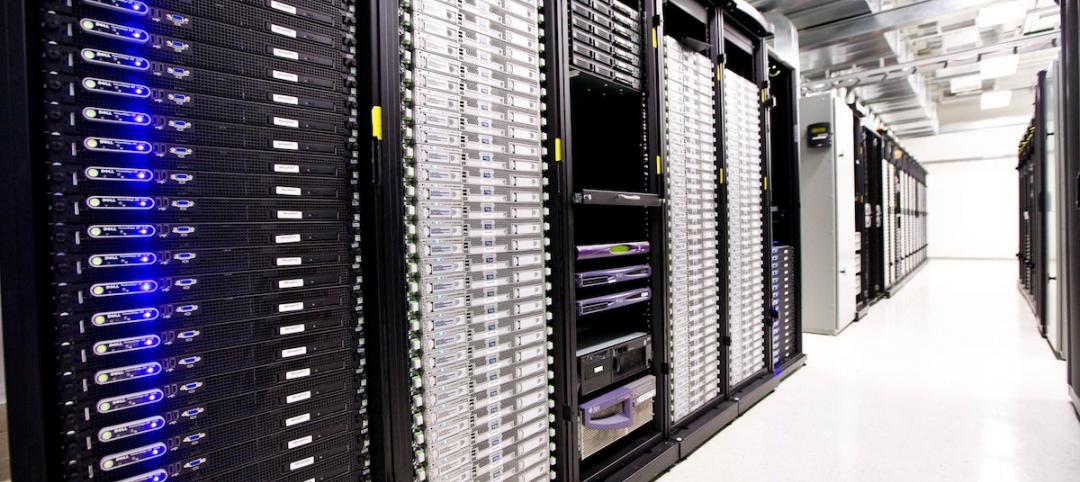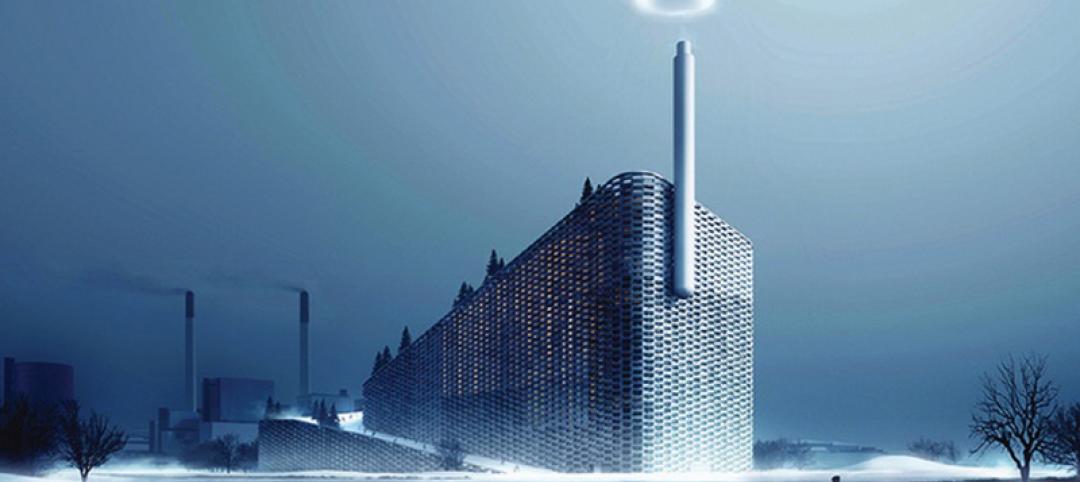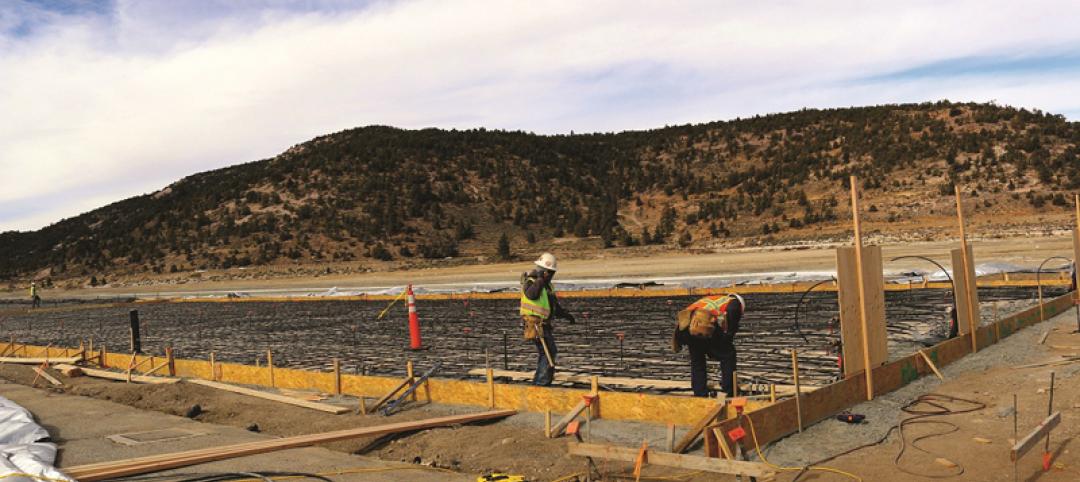Industrial development continues to be a growth sector for many metros, especially in the western U.S. But aggressive building may be finally catching up with that sector’s demand, at least temporarily.
After two years of record-smashing deliveries, the industrial pipeline has slowed in a number of markets. In its latest National Industrial Report, CommercialEdge estimates that 97.8 million sf of industrial space were started in the first half of 2024, a 33% decline from the same period a year earlier. By comparison, 1.1 billion sf were started between 2021 and 2022, with 313 million sf started in the first half of 2022 alone. The latest slowdown in starts has been occurring for the past six quarters, says CommercialEdge, which attributes the erosion to “normalized” tenant demand, oversupply, rising construction costs, and “economic uncertainty.”
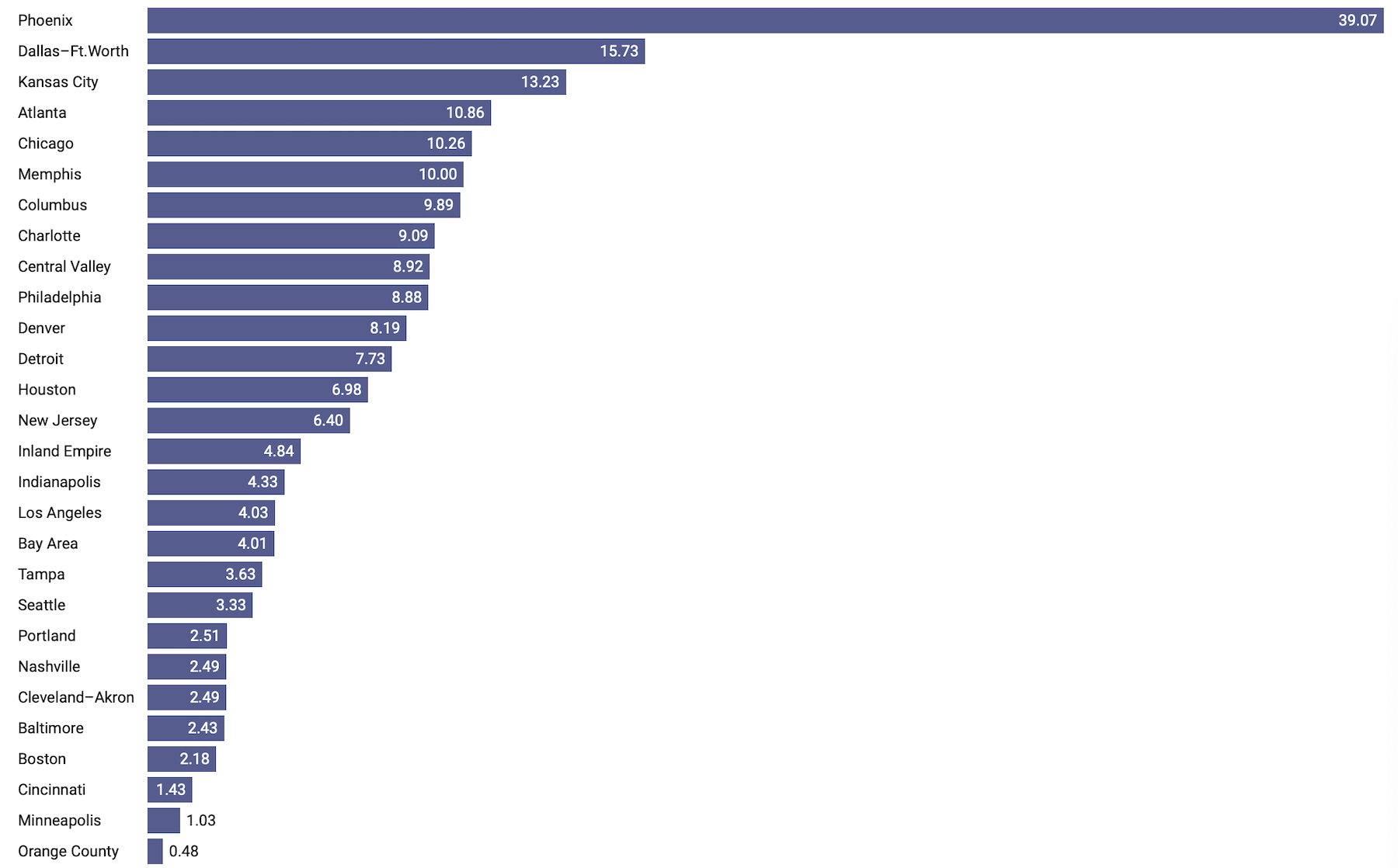
Nationwide, 375.7 million sf of industrial space were in various stages of construction through the first half of 2024, representing 1.9% of total stock. In the latest six-month period, 209 million sf of new space were delivered, compared to 160 million sf in the first half of 2022. “This growth underscores the market’s capacity to bring projects to completion despite the decline in construction starts,” CommercialEdge states.
This sector has gotten a big bump from manufacturing, which accounted for 16.1% of annualized industrial construction starts through June, compared to an estimated 7.5% in 2018 through 2021, and more than 13% in 2022 and 2023. As more manufacturing returns to the U.S., demand for industrial space is expected to benefit.
Indeed, CommercialEdge forecasts that the new development pipeline will grow in the next few years, but at a slower clip. It points out that developers have disclosed plans for 561.2 million sf of new space. “Once the market absorbs the recently completed stock, and the cost of capital begins to decrease, we expect many of these projects to see shovels in the ground,” predicts CommercialEdge.
Vacancy rates and rents for industrial space rising
Phoenix leads the country by far in new industrial space, with 39.07 million sf under construction. The next-closest metro was Dallas-Fort Worth, at 15.23 million sf. DFW’s vacancy rate sat at a relatively manageable 6.5%, but it appears this market is “hitting the brakes” on new development after delivering 126.4 million sf of industrial space since the start of 2022.
Nationally, the vacancy rate for industrial space stood at 6.1%, up slightly. The national average rent in June was $8.04 per sf, although the average for contracts signed over the previous 12 months was $10.56. The San Francisco Bay Area recorded the highest average rent, at $13.34, and $16.24 per sf for newer contracts. Miami experienced the largest premium for new leases that, at $17.35, cost tenants $5.85 more than the national average.
California’s Inland Empire led the nation in rent growth, with in-place rents rising 12.5% year-over-year. Conversely, the Midwest saw the slowest rent growth: In Kansas City, for example, in-place rents increased only 2.5%; in St. Louis, 3.4%.
Bay Area leads industrial sales
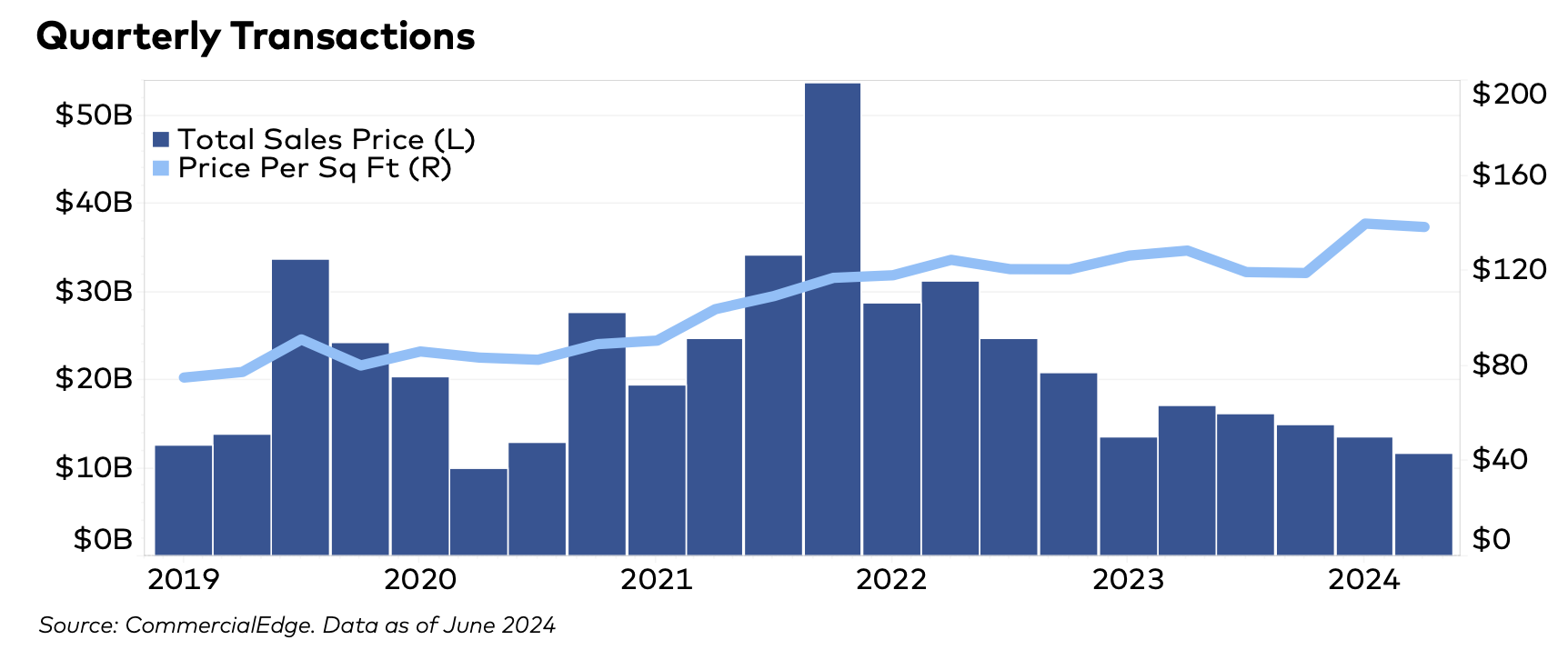
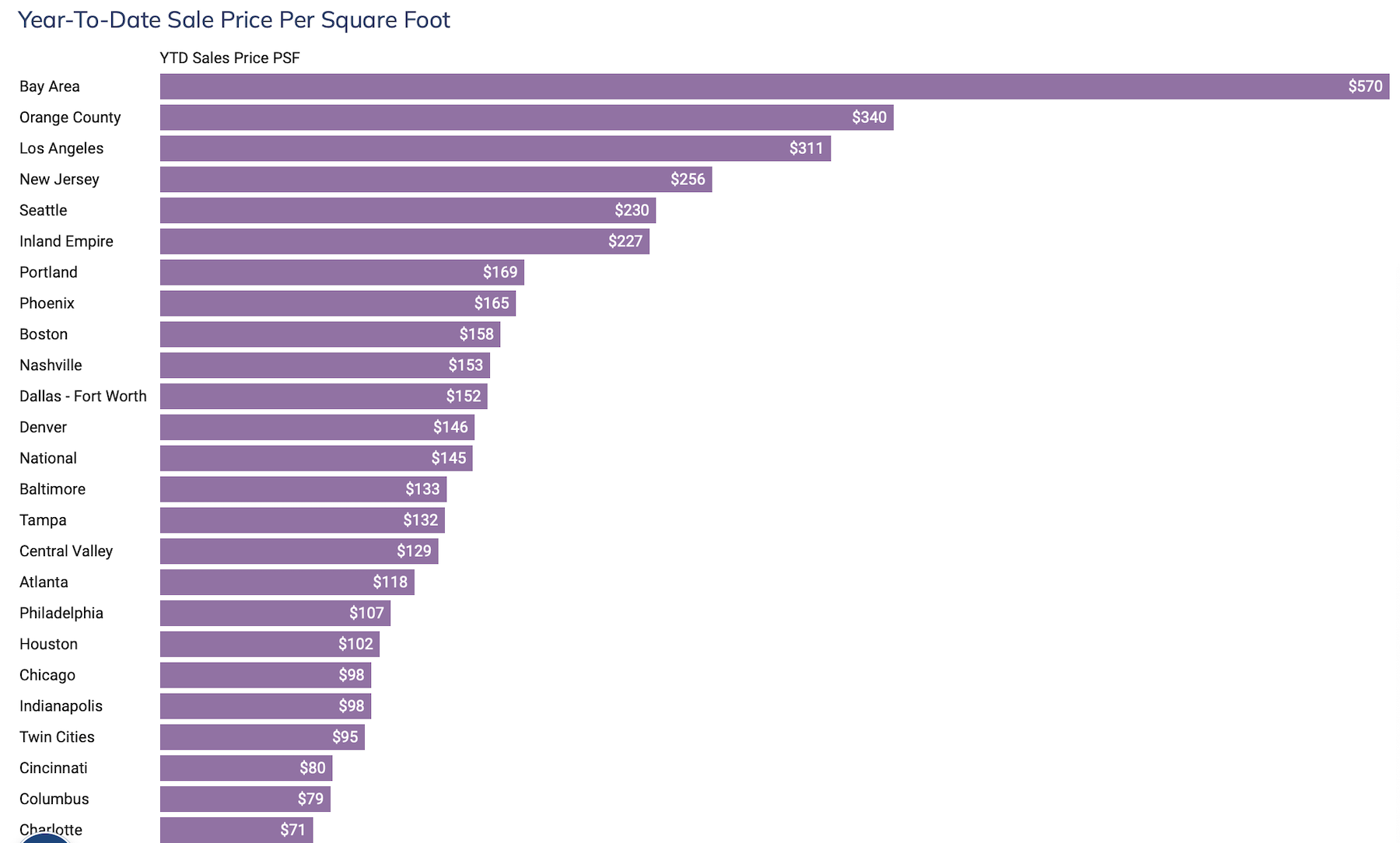
The sale of industrial buildings totaled $25.1 billion through the first half of 2024, and demand remains strong, with the average sale price of $139 per sf rising 12.9% over the same period in 2023, according to CommercialEdge estimates.
Again, the Bay Area led all markets in year-to-date industrial sales, at $2.285 billion. San Francisco was followed by Dallas-Fort Worth ($2.006 billion), Los Angeles ($1.581 billion, and Chicago ($1.314 billion).
Southern California remains the most sought-after location for distribution center and warehouse sales and development. CommercialEdge notes that earlier this year Rexford Industrial Realty paid $1 billion for 3 million sf across 48 properties in L.A. and Orange counties.
The Bay Area led the nation in average sales price per sf, at $570. This market has seen a spike in demand for advanced manufacturing space. Over 4 million sf of industrial space are under construction in the Bay Area.
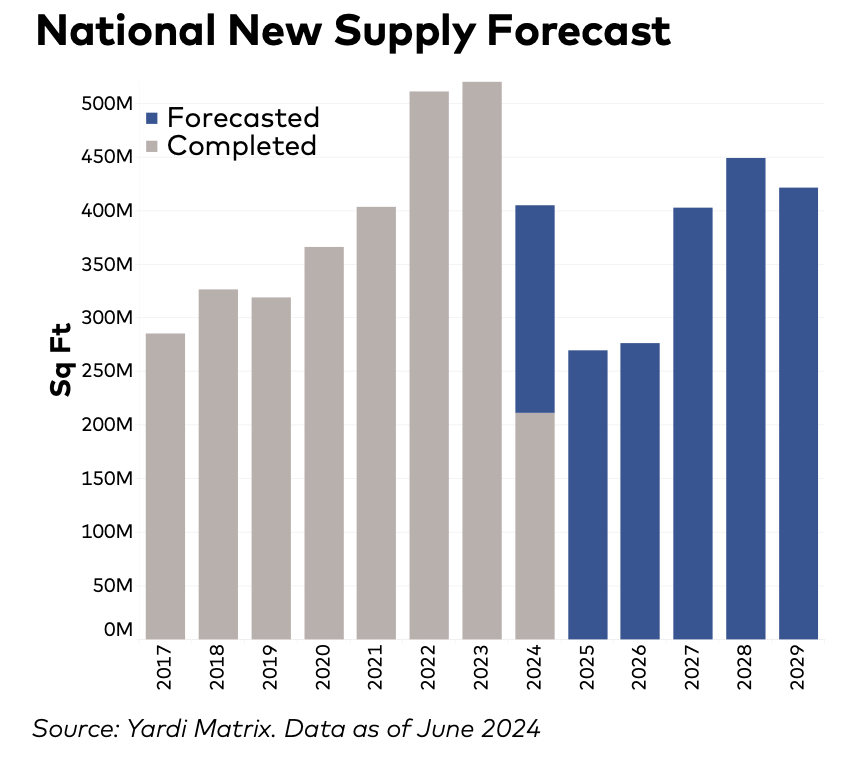
In the South, the surge in Texas’s population—it’s the fastest-growing state in the U.S.—drove demand for industrial space, with DFW serving as a hub from products arriving from Mexico, which recently surpassed Canada as America’s largest trading partner, according to the Census Bureau. That positioning is why CommercialEdge expects Dallas-Fort Worth’s industrial development and construction to eventually pick up steam again.
Other markets worth keeping an eye on include Charlotte and Nashville, with their low vacancy rates and tight supply.
On the other hand, Boston—one of the country’s most expensive markets—reported the highest industrial vacancy rate, at 8.8%. New Jersey, another pricy rent market, nevertheless remained a regional leader in industrial sales, with over $1 billion in transactions closing through June.
Related Stories
Movers+Shapers | Jun 16, 2016
THE PANAMAX EFFECT: Panama Canal expansion could trigger an East Coast construction boom
Cities lining the East Coast and Gulf Coast, from New York City to New Orleans, are spending big bucks to accommodate the larger vessels that will now be able to cross a wider and deeper Panama Canal.
Self-Storage Facilities | Apr 20, 2016
Design is now a factor in storage wars
Self-storage facilities are blending into neighborhoods better, and competing for rentals from women, their primary customers.
Industrial Facilities | Apr 13, 2016
Ford begins 10-year plan to centralize Dearborn, Mich., campus
The company said that it will rebuild 7.5 million sf of work space over a 10-year period, which will shift 30,000 employees from 70 buildings now into two primary locations.
Game Changers | Feb 5, 2016
Tesla: Battery storage is not just about electric vehicles
With his $5 billion, 13.6 million-sf Gigafactory, Tesla’s Elon Musk seeks to change the economics of battery energy storage, forever.
Game Changers | Feb 4, 2016
GAME CHANGERS: 6 projects that rewrite the rules of commercial design and construction
BD+C’s inaugural Game Changers report highlights today’s pacesetting projects, from a prefab high-rise in China to a breakthrough research lab in the Midwest.
| Jan 14, 2016
How to succeed with EIFS: exterior insulation and finish systems
This AIA CES Discovery course discusses the six elements of an EIFS wall assembly; common EIFS failures and how to prevent them; and EIFS and sustainability.
Giants 400 | Sep 10, 2015
INDUSTRIAL SECTOR GIANTS: Stantec, Turner, Jacobs among top industrial AEC firms
BD+C's rankings of the nation's largest industrial sector design and construction firms, as reported in the 2015 Giants 300 Report
Industrial Facilities | Sep 3, 2015
DATA CENTER SECTOR GIANTS: Fluor, Gensler, Holder Construction among top data center AEC firms
BD+C's rankings of the nation's largest data center sector design and construction firms, as reported in the 2015 Giants 300 Report
Industrial Facilities | Aug 18, 2015
BIG crowdfunds steam ring prototype for Amager Bakke power plant project
The unusual power plant/ski slope project in Copenhagen will feature a smokestack that will release a ring-shaped puff for every ton of CO2 emitted.
Sponsored | Industrial Facilities | Aug 17, 2015
California wastewater agency wins with radiant technology
The Big Bear Area Regional Wstewater Agency tried several different methods to dry the sludge with only marginal success, so they decided to devise a new system that would be more effective, more efficient and would reduce the odor complaints.


